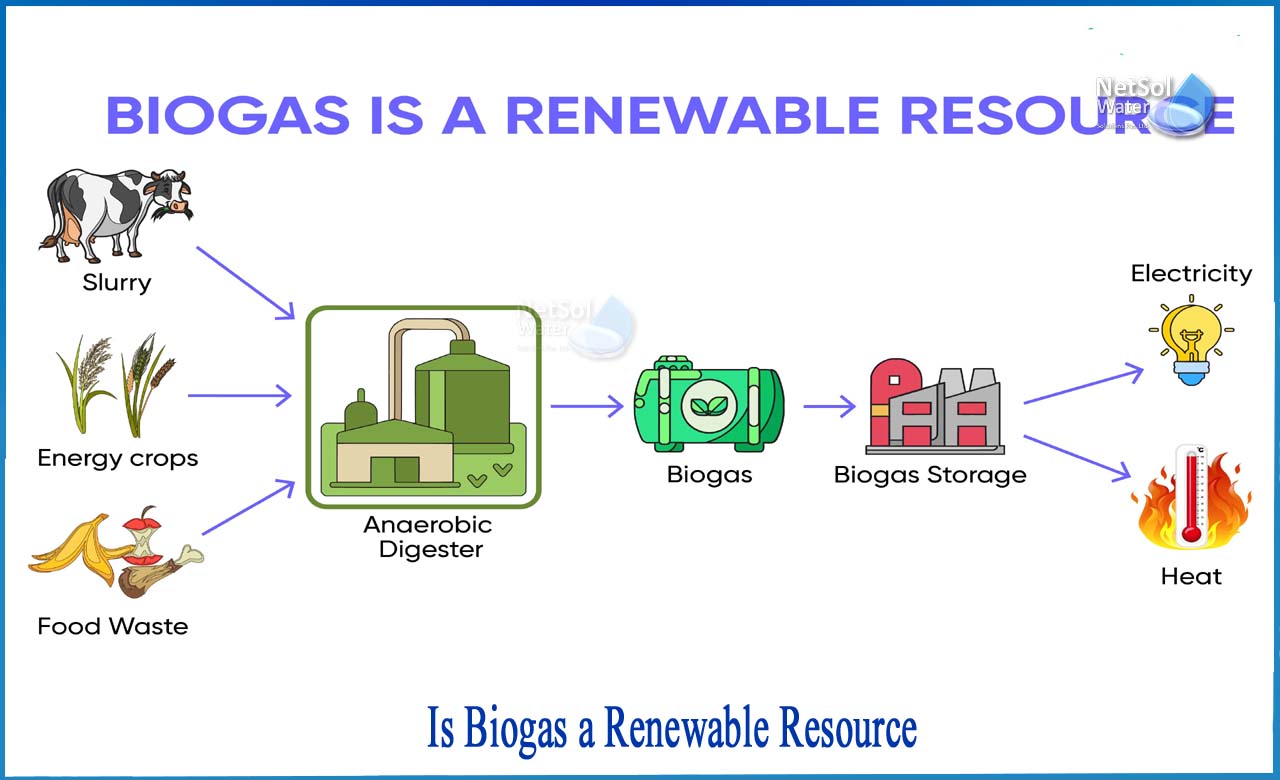What do you mean by Biogas?
Agricultural waste, manure, municipal trash, plant material, sewage, green waste, and food waste are used to make biogas, which is a mixture of gases mostly made up of methane and carbon dioxide. It is a source of renewable energy.
Anaerobic digestion with anaerobic organisms or methanogens in an anaerobic digester, biodigester, or bioreactor produces biogas.
Biogas is mostly methane and carbon dioxide, with some hydrogen sulphide, moisture, and siloxanes thrown in for good measure. Methane, hydrogen, and carbon monoxide are all combustible gases that can be oxidised with oxygen. Biogas can be utilised as a fuel because of this energy release; it can be used in fuel cells and for any heating purpose, such as cooking. It can also be utilised to transform the energy in the gas into electricity and heat in a gas engine.
Biomass and the Sustainability
The link between energy and long-term human growth is undeniable. Energy is not a goal in and of itself, but rather a necessary tool for social and economic activities. As a result, a lack of adequate energy services is linked to several difficulties of sustainable development, including poverty reduction, women's advancement, environmental protection, and job creation. To develop the social, economic, and political enabling conditions for a transition to a more sustainable future, a focus on institution-building and increased policy discourse is required. Biomass energy technologies, on the other hand, are a viable choice with a huge potential impact for developing countries with low levels of energy services.
Agricultural biomass provides energy
The following are the key benefits connected to energy, agricultural, and environmental issues, which are foreseeable both regionally and globally:
1: Reduced reliance on imported energy and related products, as well as reduced energy production's environmental impact (greenhouse effect, air pollution, waste degradation).
2: Food surpluses and attendant economic costs are reduced by substituting food crops.
3: Utilization of marginal and set-aside areas, as well as the elimination of associated socioeconomic and environmental issues (soil erosion, urbanisation, landscape deterioration, etc.).
4: The creation of technological innovation and the development of fresh know-how.
Though renewable energy is a well-known issue, its importance has yet to be grasped by the general public. Solar and wind energy are the leaders in renewable energy production, but biogas generation is coming up. The fundamental benefit of biogas production is that it can be used as a stored energy source to compensate for times when solar and wind energy are unavailable. The potential for biogas-generated electricity to meet the demands of India's rural areas, which have been underserved by the country's electrical infrastructure, is significant. With new government rules and increased knowledge, it's safe to say that biogas generation in India will see a significant increase in the next years.
Conclusion
>Biogas technology is important not only for providing fuel, but also for maximising the use of biomass in forestry, animal husbandry, and fisheries, as well as for evolving the agricultural economy, protecting the environment, implementing agricultural recycling, and improving sanitary conditions in rural areas.
>One of the main choices for replacing oil in the face of the rising demand for oil is biomass energy, which may be a more advanced in this century. Any county can rely on biomass energy to provide a portion of its local needs.
>Biogas technology development is an important part of the alternative rural energy programme, but its full potential has yet to be realised. If this is to be realised, everyone must work together. Domestic, agricultural, and small-scale industrial applications will all benefit from the technology.
>Support biomass research and learn from countries that are ahead of the curve in this area. Meanwhile, biomass energy can help to avoid depleting the world's oil reserves.
>Biogas energy production may be hampered by dwindling agricultural land, but effective techniques and resource management strategies will mitigate the effects.
Netsol Water is Greater Noida-based leading water & wastewater treatment plant manufacturer. We are industry's most demanding company based on client review and work quality. We are known as best commercial RO plant manufacturers, industrial RO plant manufacturer, sewage treatment plant manufacturer, Water Softener Plant Manufacturers and effluent treatment plant manufacturers. Apart from this 24x7 customer support is our USP. Call on +91-9650608473, or write us at enquiry@netsolwater.com for any support, inquiry or product-purchase related query.



